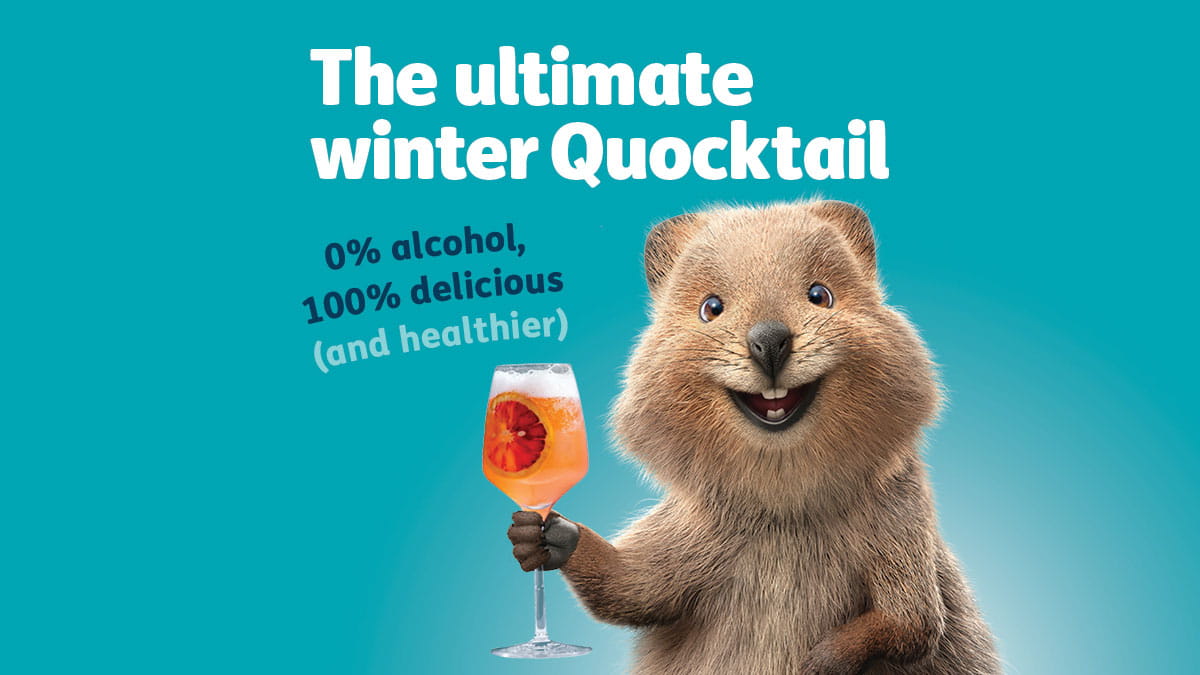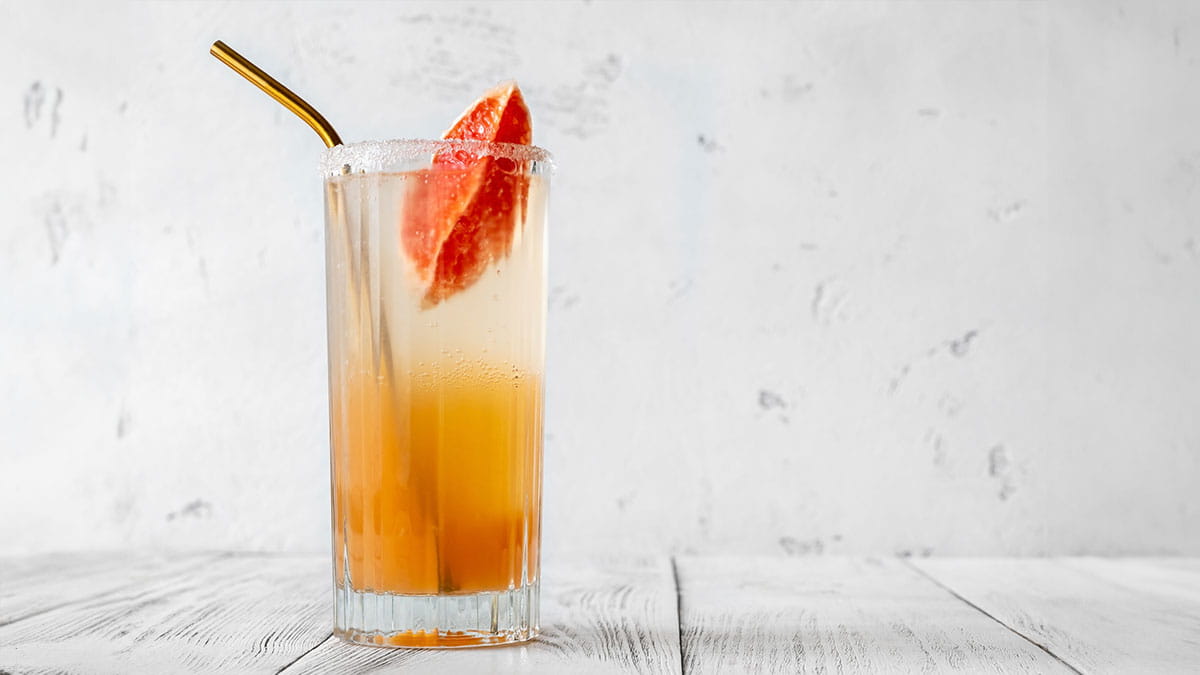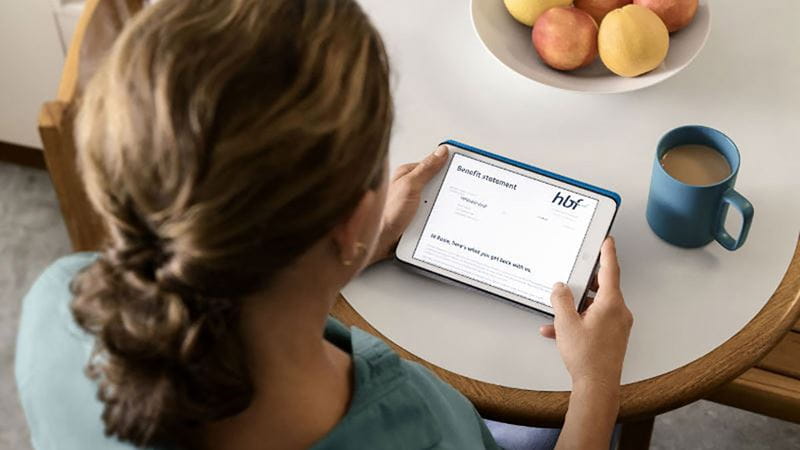Blog article
From gut health to improved immune function – these are the mighty benefits of going alcohol-free

Whether it’s celebrating a birthday or celebrating a Friyay, alcohol is a long-standing part of cultures around the world. To put Australia’s drinking habits under the microscope: the most recent national study conducted during 2022 and 2023 concluded that over two-thirds of Australians aged 14 and older consumed alcohol, around 5% drink alcohol daily, and just over one-third (35.9%) of Australians drink weekly (excluding daily drinkers).1 The data collected from this health survey identified a risk level when assessed against Australia’s current drinking guidelines, and with countries like Canada2 embracing vastly different revised guidelines (aimed at steering the ship toward zero alcohol) it’s a risk not to be overlooked.
But while good times are important to Australians, so is good health - and there has indeed been a recent shift in drinking habits, especially amongst young people3, with a big swing toward sobriety.
So, what health benefits can you expect to see when going alcohol-free? Apart from possible uplifts to your mood, energy levels, and sleep quality4, there are some less talked about health benefits that need to be examined - over a Vitamin C-rich muddled mocktail of course (recipe for that later, keep reading.)
5 health benefits of going alcohol-free
Improved gut health and digestion
Alcohol can irritate your stomach lining while also disrupting the precious balance of good bacteria in your gut2. After just a month off alcohol you may notice less bloating, fewer digestive upsets, and better regularity.
Enhanced immune function
Because alcohol has been proven to suppress immune cell production3, a month off may help your immune system gain strength, so you may find yourself catching fewer colds or infections.
Reduced risk of cancer4
Let’s cut straight to the point, alcohol has been shown to increase the risk of the following types of cancer:
- Liver cancer
- Oral cancer
- Breast cancer
- Pharynx cancer
- Larynx cancer
- Esophagus cancer
- Stomach cancer
- Colorectal cancer
- Ovarian cancer
As a known human carcinogen, even light drinking (having one drink) has been associated with a slightly higher risk of breast cancer in women and colorectal cancer in men.
Healthier skin5
Even in a month, you may notice a change in your skin due to better hydration, reduced inflammation, and less exposure to alcohol’s known toxins.
Sharper focus and better memory6
Without alcohol disrupting both your sleep architecture and brain function, some people may notice their concentration, memory, and decision-making improve — even after a few weeks.
Let’s also shout out the savings, because quitting alcohol can certainly save you money in the long run.
Changing trends worth a cheers!
Encouragingly, the sober curious movement has been gaining popularity and has seen more and more people adopt these principles. Being “sober curious" means you identify as “being more mindful of when and why you're drinking"10. It can be cutting down on drinking, abstaining for periods of time (hello, Dry July) or stopping drinking altogether.
As this movement has gained speed, with it there has been a steady flow of low alcohol- and alcohol-free options hitting the shelves at supermarkets, bottle shops, and bars. Which leads us to a winter quocktail recipe that’s well-deserved after all that reading.

When the sun is hiding, add some sparkle! This fizzy winter mocktail has been given the CSIRO Total Wellbeing Diet tick of approval. It blends vitamin C-rich blood orange and lime with soothing honey and probiotic ginger kombucha - boosting immunity and gut health in every sparkling sip.

Blood orange and ginger kombucha fizz
Ingredients
Serves 1
- 2 blood oranges (around 200g with skin), juiced — should yield roughly ½ cup of juice
- 1 teaspoon honey (or to taste)
- Juice of ½ lime
- 120ml kombucha (any flavour, preferably ginger-based)
Method
Squeeze the blood orange juice into a cocktail shaker or jar with a lid. Add the honey and lime juice and shake until the honey has dissolved.
Fill a glass with ice and pour over the blood orange mixture. Top up with kombucha and stir gently.
Garnish with a slice of blood orange and enjoy right away.
TIP: If blood oranges are unavailable, you can use any variety such as Navel or Valencia.
If you or someone you know is struggling with alcohol dependency, support is available through Lifeline and DrinkWise.
This article contains general information only and does not take into account the health, personal situation or needs of any person. In conjunction with your GP or treating health care professional, please consider whether the information is suitable for you and your personal circumstances.
Sources
1 Australian Institute of Health and Welfare - Alcohol, tobacco & other drugs in Australia, Alcohol - Australian Institute of Health and Welfare
2 Canadian Centre on Substance Use and Addiction - Canada’s Guidance on Alcohol and Health
3 Australian Institute of Health and Welfare – Young people’s consumption of alcohol
4 Alcohol and Drug Foundation – Benefits of cutting down on alcohol
5 National Library of Medicine - Gut microbiota dysbiosis: The potential mechanisms by which alcohol disrupts gut and brain function
6 National Library of Medicine - Alcohol and immune system
7 Cancer risk based on alcohol consumption levels
8 Medical News Today – What are the short and long term effects of alcohol on the skin
9 National Library of Medicine - Alcohol: Effects on Neurobehavioral Functions and the Brain
10 Alcohol and Drug Foundation – What is ‘sober curious?’



